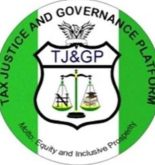Byline: Ibanga Isine
75,000 nurses and midwives left Nigeria since 2019
The Nigerian healthcare sector faces an imminent collapse unless urgent steps are taken to halt the mass migration of the country’s nurses and midwives.
According to two distinct reports published in 2023, Nigeria is losing more qualified nurses and midwives than ever before as a result of subpar pay and working conditions.
However, the situation in the healthcare sector will deteriorate further as a result of the looming strike caused by President Bola Tinubu’s hasty withdrawal of subsidy for petrol.
Mr. Tinubu had announced during his inauguration on May 29 that his government will not support a petrol subsidy regime that has cost the country billions in foreign exchange.
The new government’s decision has resulted in severe scarcity and an increase in the price of petrol at the pump across the country.
Many nurses and midwives who had been complaining about hardship and poor working conditions would flee the country in what became known as “Japa,” a term used to describe Nigerians’ growing tendency to flee the country.
In a report, which was released on May 12, during the International Nurses Day, Micheal Anachi, president of the National Association of Nigerian Nurses and Midwives (NANNM), stated that 75,000 nurses and midwives had left the country over the past five years.
Speaking on the theme: “Our Nurses, Our Future,” Mr. Anachi said that while nurses play a very significant role in the nation’s healthcare system, they were faced with many challenges.
“As a result of poor wages, and lack of decent work environments, over 75,000 Nurses and Midwives have migrated from Nigeria within a period of five years,” he had said.
Mr. Ananchi listed the difficulties faced by nurses and midwives, including growing workloads, health risks, and compromises in the quality of healthcare delivery caused by a lack of professionals, particularly in some geographic and specialised areas.
Other difficulties included a lack of social security, insurance, adequate pay, and other rewards for members of the association.
Continuing, he said, “Insecurity within and around the health facilities is a major challenge facing nurses in Nigeria. We have had various situations across the country where nurses were kidnapped for ransom, occupational hazards, and violence at the workplace while discharging their lawful duties.”
The NANNM president objected to the profession’s neglect, pointing out that seven years after the Nurses and Midwives Scheme of Service was approved, it has still not been gazetted.
According to this newspaper’s findings, Nigeria’s government has yet to establish a nursing services directorate at the Federal Ministry of Health.
This is in addition to the government’s failure to implement a National Industrial Court (NIC) ruling of 2012, which called for a 60 percent shift duty allowance.
3,383 nurses and midwives migrated to UK from April 2012 – March 2023
A new report released on Friday by the Nursing and Midwifery Council (NMC), indicated that a total of 3,383 Nigerian-trained nurses and midwives were licensed to practice in the United Kingdom in one year.
The NMC is the independent regulator for nurses and midwives in the UK, and nursing associates in England.
The Punch Newspaper in a recent report cited the NMC as indicating that 10,639 nurses and midwives of Nigerian origin practice in the UK.
The NMC report comes just a few months after the World Health Organisation (WHO) identified Nigeria and 54 other countries as having the most pressing health workforce challenges in terms of universal health coverage.
Following the impact of Covid-19 and widespread disruptions to health services, the WHO reported on March 8, 2023, that health workers in the identified countries continued to seek better-paying job possibilities in wealthier nations.
According to the report, 37 of the 55 countries are in Africa, eight in the Western Pacific, six in the Eastern Mediterranean, three in South-East Asia, and one in the Americas.
While the UK government swiftly added Nigeria and the other 53 affected nations to its red list of places where healthcare workers should not be recruited, the Nigerian government has done nothing to address the problems that cause the rapid mobility of its health workers.
Instead the government has been grandstanding and boasting that it has more than enough manpower to run its healthcare system.
The reality on ground showed the opposite and the country may soon be struggling to get enough nurses and midwives in both public and private hospitals.
Between 2019 and mid-2022, at least 4,460 nurses migrated from Nigeria to the United Kingdom (UK), data from the development Research and Project Centre (dRPC) has shown.
The data was released by dRPC, a public policy think-tank, at a symposium on Wednesday in Abuja. The programme was put together to discuss the brain drain in Nigeria’s health sector and its implications for sustainable child and family health service delivery and financing in the context of new national priorities.
Quoting data from the register of the Nursing and Midwifery Council (NMC) of the UK, dRPC said the number of Nigeria-trained nurses increased by 68.4 percent from 2,790 in March 2017 to 7,256 in March 2022.
The data shows that 225 nurses and midwives migrated to the UK in 2019; 663 in 2022; and 626 in 2021. Within the ten months of this year, 2,946 nurses and midwives have relocated to the UK to seek greener pastures.
How to stop the mass exodus
Stella Ekpendu, principal of the School of Nursing at the University College Hospital in Ibadan, has argued that unless the government addresses the issue, mass migration of nurses and midwives in Nigeria will continue.
“The exodus of nurses, for example, from Nigeria to abroad, will not stop until the government addresses the issue of poor salary and the decay in the Nigerian health sector,” Mrs. Ekpendu had said.
Additionally, the federal and state governments ought to take immediate action to raise the pay for nurses and midwives while also enhancing their working conditions.
A minimum period of time nurses and midwives must work in Nigeria before being permitted to work abroad should be fixed, along with more opportunities for professional growth and development.
Efforts should be made to absorb many trained and unemployed nurses and midwives, as well as others who are forced to work in private hospitals where they are grossly underpaid.
Aside from hiring more people, the government should invest more in training, including the establishment of more nursing and midwifery schools across the country, and private organisations should be encouraged to participate in nursing education.
The government may also provide scholarships and other rewards to entice more students to pursue nursing and midwifery as a career.
Nurses and midwives are critical stakeholders in the health sector and must be adequately motivated to perform at their best.
This is a public service report and part of GuardPost’s efforts to improve healthcare delivery in Nigeria.




